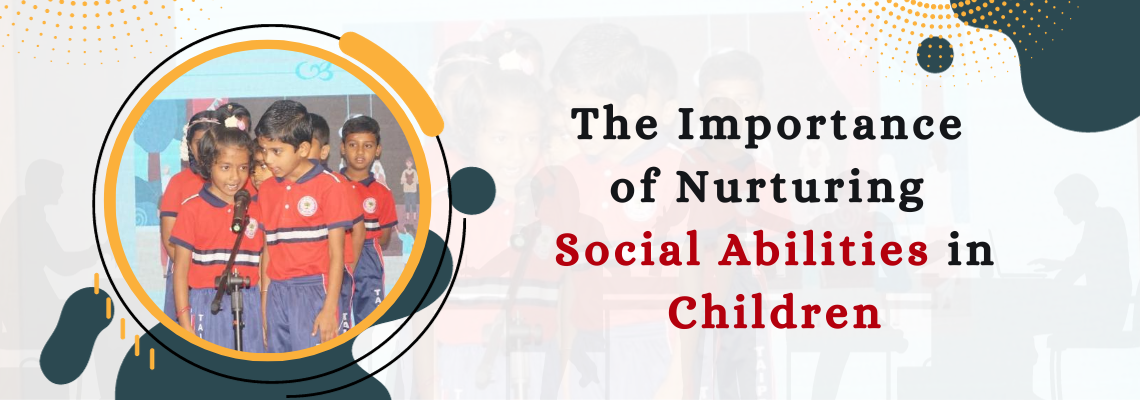Introduction
In a world driven by technology and screens, the importance of nurturing social abilities in children has become more significant than ever. Social skills are not just a refinement but a crucial aspect of a child’s development. In this blog, we will explore why cultivating social abilities in children is essential and how it can positively impact their lives.
Building Healthy Relationships
One of the most obvious reasons for nurturing social skills in cbse schools children is to help them form and maintain healthy relationships. Social abilities, such as effective communication, empathy, and active listening, are the building blocks of meaningful connections with peers, family, and future friends. Children who develop these skills early are more likely to have fulfilling relationships throughout their lives.
Improved Communication
Communication is a fundamental life skill. Teaching children how to express themselves clearly, understand others, and resolve conflicts peacefully is invaluable. It equips them with the tools to navigate a variety of situations, from school projects to workplace collaborations.
Confidence and Self-Esteem
When children feel confident in their social abilities, they tend to have higher self-esteem. Success in social interactions boosts their self-worth and encourages a positive self-image. This, in turn, empowers them to pursue their goals and face challenges with determination.
Teamwork and Cooperation
In the real world, success often hinges on the ability to work effectively in teams. Nurturing social abilities in children prepares them for collaboration and cooperation, which are essential skills in school, extracurricular activities, and, eventually, in their careers.

Conflict Resolution
Conflict is a natural part of life. Teaching children how to handle conflicts constructively and find solutions peacefully is a valuable life skill. Children who are adept at conflict resolution are better equipped to manage disagreements without resorting to aggression or hostility.
Empathy and Compassion
Fostering empathy and compassion in children helps them become more considerate and understanding individuals. These qualities are not only essential for building strong relationships but also for contributing positively to society.
Academic Success
Believe it or not, social abilities can impact a child’s academic performance. Effective communication, active participation in class, and the ability to collaborate with peers can lead to better educational outcomes.

Adaptability and Resilience
In an ever-evolving world, the ability to adapt is an indispensable skill.in the cbse education Children who have strong social abilities tend to be more adaptable and resilient in the face of challenges and change. They can cope with new situations and bounce back from setbacks more effectively.
Emotional Regulation
Social skills also encompass the ability to manage emotions. Children who learn to understand and control their feelings are better equipped to handle stress and anxiety.
Lifelong Benefits
Lastly, the social abilities children acquire at a young age are skills they can carry with them throughout their lives. These skills not only impact their childhood but also shape their adult experiences, from personal relationships to professional success.
Conclusion
In conclusion, nurturing social abilities in children is a crucial investment in their future. It equips them with the tools to navigate the complexities of the world, build meaningful relationships, and lead fulfilling lives. As parents, educators, and caregivers, it’s our responsibility to encourage and support the development of these essential skills in the next generation.



